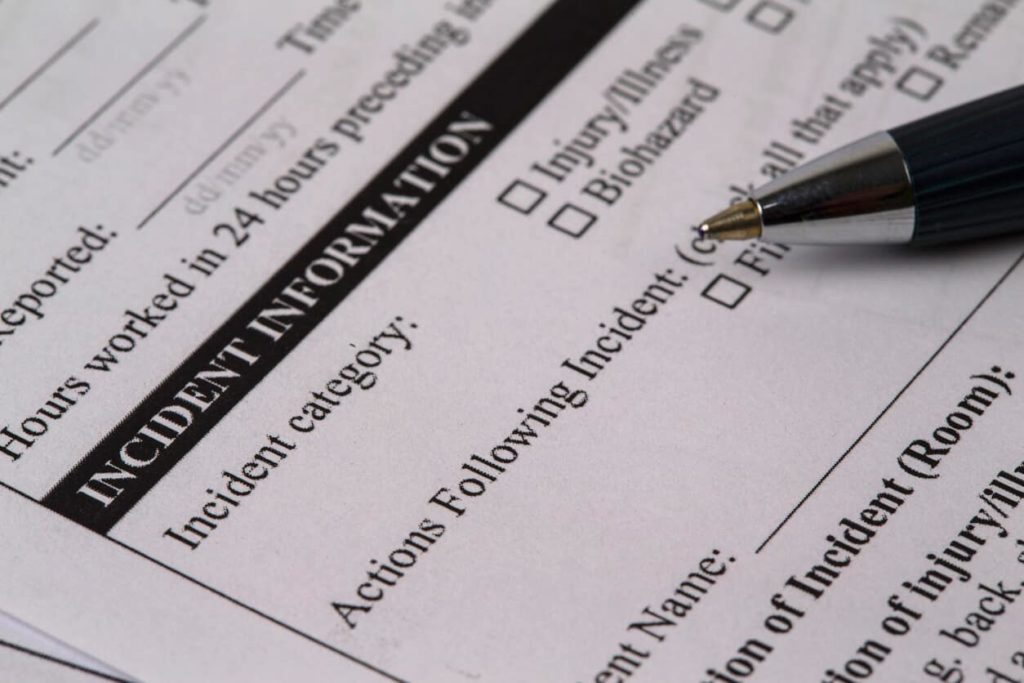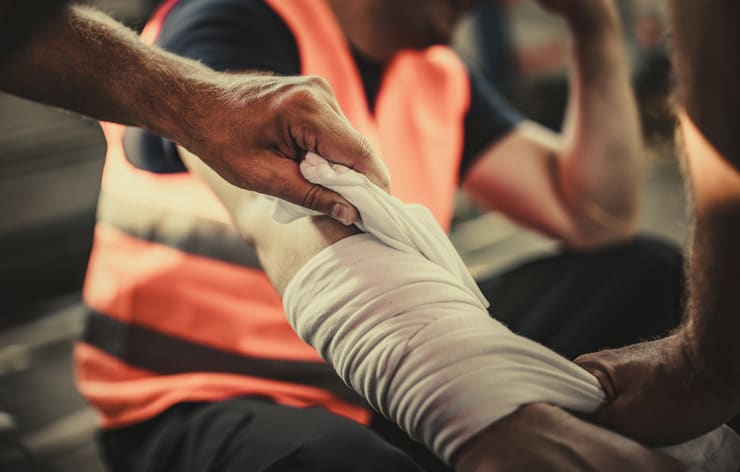Eight Common Workplace Injury Questions from Colorado Employees
As employees, we all want to ensure a safe and healthy working environment. However, accidents can still happen, leaving us with various concerns and questions regarding workplace injuries. Whether you have recently experienced an injury at work or simply want to be well informed about your rights and responsibilities as an employee in Colorado, you need relevant information and answers to frequently asked questions concerning workplace injuries, from filing Colorado workers’ compensation claims to reporting procedures and potential legal actions.
Bachus & Schanker Wins – Over $1 Billion Recovered
- # 1 How long does an employee have to report an injury in Colorado?
- # 2 How should employers respond to workplace injuries?
- # 3 What are the three most common workplace injuries?
- # 4 How long does an employee have to file a workers' comp claim in Colorado?
- # 5 How does Colorado workers' comp work?
- # 6 Should I file for workers' compensation if I'm injured at work?
- # 7 Can I sue my employer for my injuries?
- # 8 What should I do if my claim is denied?
- Get help from our workers' compensation lawyers today
- Related Workers Compensation Resources
- You Deserve Fair Compensation
# 1 How long does an employee have to report an injury in Colorado?
In Colorado, employees are required to report workplace injuries to their employer as soon as possible. Ideally, the injury should be reported within four working days of its occurrence. Failing to report an injury within a reasonable time frame may negatively impact an employee’s ability to file for workers’ compensation benefits and other potential legal actions.
# 2 How should employers respond to workplace injuries?
Employers have a legal obligation to respond promptly and appropriately when an employee sustains a workplace injury in Colorado by doing the following:
- Ensure immediate medical attention: If the injury is severe or life-threatening, employers must immediately call for emergency medical assistance
- Provide necessary first aid: If the injury is not severe, employers should have trained personnel who can provide basic first aid until professional medical help arrives or until the injured worker can be taken to a healthcare facility
- Document the incident: Employers should thoroughly document the details of workplace injuries, including the date, time, location, nature of the injury, and testimonies from witnesses. This documentation will be crucial during investigations or potential legal proceedings.
- Report to relevant authorities: In most cases, employers are legally required to report serious work-related injuries or illnesses to regulatory bodies such as the Occupational Safety and Health Administration (OSHA) within specific timeframes
- Facilitate workers’ compensation claims process: Employers must provide their employees with information about how to file a workers’ compensation claim
# 3 What are the three most common workplace injuries?
Workplace injuries can vary depending on the industry and type of work. Generally, the three most common workplace injuries include:
- Slips, trips, and falls: These injuries can occur due to wet or slippery surfaces, uneven floors, cluttered walkways, inadequate lighting, or lack of safety measures
- Strains and sprains: These injuries often result from repetitive motions, poor ergonomics, lifting heavy objects incorrectly, overexertion, or prolonged uncomfortable positions
- Cuts and lacerations: Working with sharp objects has a risk for cuts and lacerations
# 4 How long does an employee have to file a workers’ comp claim in Colorado?
In Colorado, employees have strict deadlines for filing a workers’ compensation claim. Generally, an employee has two years from the date of the injury to file a claim. However, it is crucial to note that certain exceptions and circumstances can alter this timeframe.
For instance, if an occupational disease develops over time due to work conditions, the two-year period may start from when the employee becomes aware or should reasonably have become aware of the disease’s connection to their job.
# 5 How does Colorado workers’ comp work?
In Colorado, the workers’ compensation system provides benefits to employees who suffer work-related injuries or illnesses. Here is an overview of how workers’ comp in Colorado works:
- Employer’s responsibility: Employers with one or more employees must carry workers’ compensation insurance coverage. This ensures that injured employees receive medical treatment and other eligible benefits while covering the employer against potential liability for workplace injuries.
- Reporting a workplace injury: If an employee sustains a work-related injury, they should report it to their employer as soon as possible. Failure to promptly report may impact eligibility for benefits.
- Seeking medical treatment: Injured employees have the right to seek appropriate medical treatment from healthcare providers authorized by their employer’s insurance carrier or self-insured company
- Filing a claim: To initiate a claim for workers’ compensation benefits, an injured employee must file a written notice (“Application for an Expedited Hearing”) with the Division of Workers’ Compensation within two years of the injury date
- Benefit eligibility and compensation: Once a claim is approved, eligible injured workers may receive medical expenses coverage, wage payments (typically at two-thirds of their average weekly wage), and additional disability benefits
- Dispute resolution process: In case of disputes regarding claims or benefit denials, mediation or formal hearings can be pursued through the Office of Administrative Courts to resolve conflicts
# 6 Should I file for workers’ compensation if I’m injured at work?
If you sustain a work-related injury, filing for workers’ compensation is recommended. Even if the injury seems minor initially, it’s advisable to report it and seek medical evaluation because some injuries may worsen or have underlying complications that are not immediately apparent.
# 7 Can I sue my employer for my injuries?
Workers’ compensation laws typically provide an exclusive remedy, meaning, in most cases, you cannot sue your employer directly for your injuries if they have workers’ compensation insurance. However, there are exceptions to this rule:
- Employer intentional misconduct: If you can demonstrate your employer intentionally caused your injury or engaged in extreme negligence that resulted in your injury, you may be able to file a lawsuit against them
- Third-party liability: If a third party caused or contributed to your Colorado workplace injury through their negligence or wrongdoing, you may have grounds to pursue a personal injury lawsuit
- Uninsured employers: In some cases where an employer does not carry workers’ compensation insurance as required by law, employees may be permitted to seek legal action against them
It is important to consult with an experienced Colorado workplace injury attorney to assess the specifics of your case and advise you on the best course of action.
# 8 What should I do if my claim is denied?
If your workers’ compensation claim is denied, there are several steps you can take:
- Review the denial letter: Carefully read through the denial letter and understand the reasons provided for denying your claim
- Consult with a workplace injury lawyer: Consider seeking legal advice from an experienced workers’ compensation attorney who can guide you through the appeals process and provide expert representation on your behalf
- Gather supporting documentation: Collect any additional medical records, reports, witness statements, or other evidence that can support your case. This may help strengthen your appeal.
- Appeal the decision: Follow the instructions provided in the denial letter regarding how to initiate an appeal
- Attend hearings and mediation sessions: Be prepared to attend hearings or mediation sessions as required during the appeals process
Having knowledgeable legal counsel by your side could significantly increase your chances of reversing a denied claim and obtaining your benefits.
Get help from our workers’ compensation lawyers today

When facing difficulties with your workers’ compensation claim or when you have questions regarding your rights and benefits, don’t hesitate to seek professional guidance. The expert Colorado workers’ compensation lawyers at Bachus & Schanker are ready to assist you in navigating the complexities of the legal process, advocating for your rights, and helping you obtain the compensation you deserve.
Sources:
Insurance Requirements. (2023).
Workers’ Compensation 101 for Employers in Colorado. (2023).
Related Workers Compensation Resources
You Deserve Fair Compensation
Don’t let the insurance companies intimidate you into accepting less than you deserve. We’re ready to fight for you.

Written and Legally Reviewed By: Kyle Bachus
4.6 ★★★★★ 1,461 Google Reviews
Kyle is a member of the Colorado and Florida Bar associations and has served on the Board of Directors of the Colorado Trial Lawyers Association for more than twenty years in total. Over the years, Kyle has achieved justice for many clients. He has served on numerous committees and repeatedly won recognition from his peers at both the state and national level. He is proud of the role he has played in the passage of state and national legislation to protect consumers and is a frequent speaker and guest lecturer.













